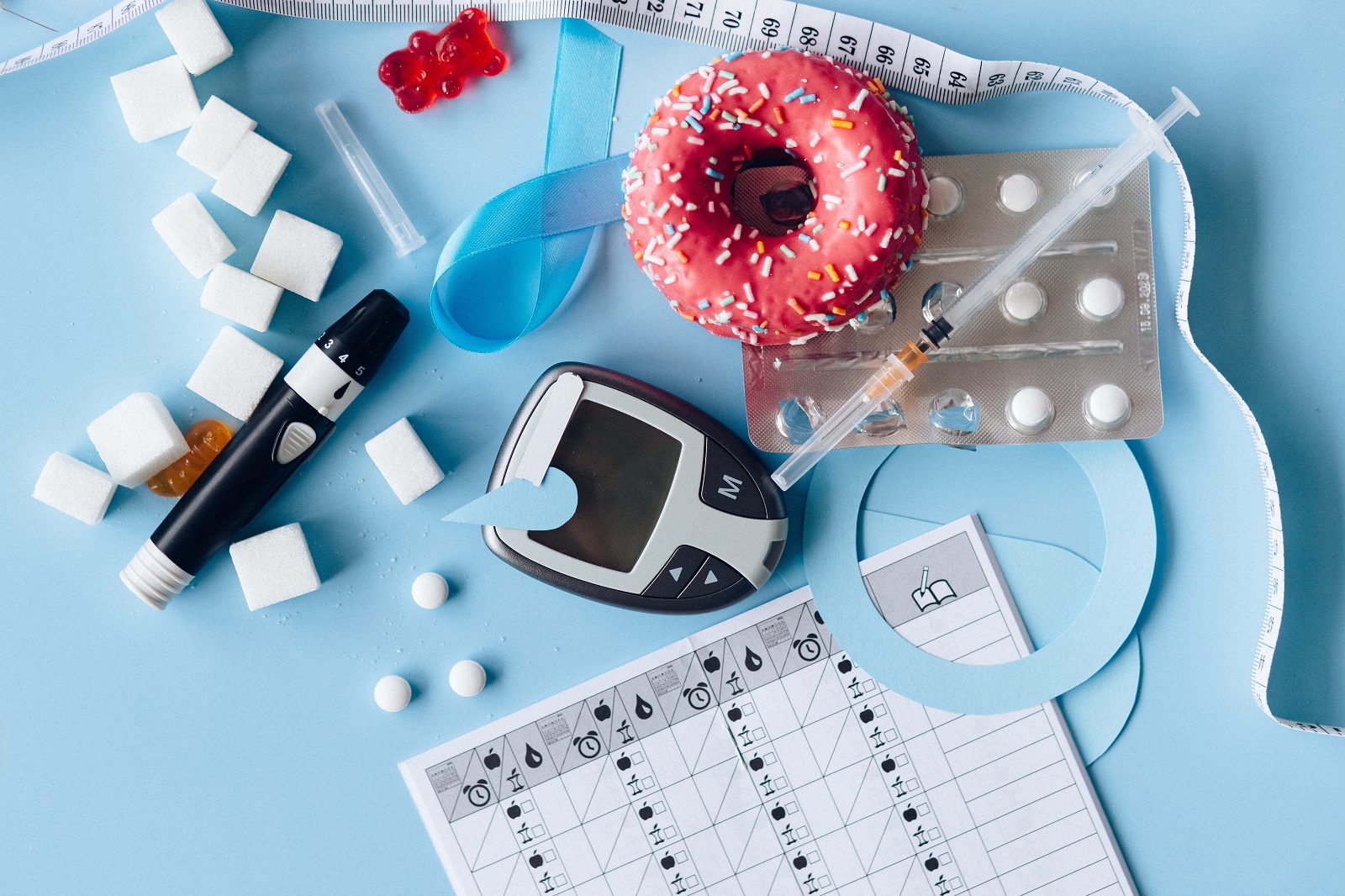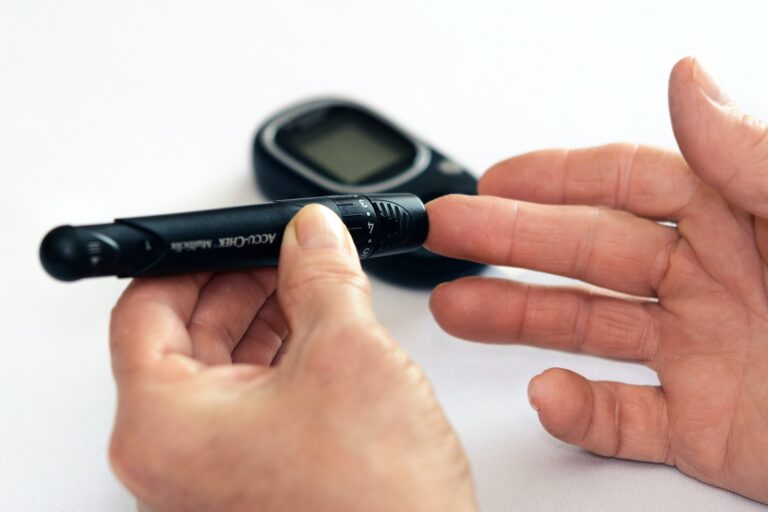Are you a person with Diabetes looking to lose weight and improve your overall health? Losing weight can be a challenge for even a normal person. But it’s especially vital for people with Diabetes to pay attention to their diet and exercise routine. A specifically designed weight loss plan for Diabetics can come in handy for such individuals.
It’s important to consume balanced meals, perform regular physical activity, and work with a healthcare professional to create a weight loss plan that meets your individual needs. So if you’re ready to take control of your health and shed those extra pounds, read on for tips and strategies to get started.

There are many benefits of losing weight as a person with Diabetes, such as:
Losing weight can help improve blood sugar control and reduce the risk of high or low blood sugar episodes. This can help prevent complications from Diabetes and improve overall health.
Excess weight can increase the risk of complications from Diabetes, such as heart disease, stroke, and kidney disease. Losing weight can reduce the risk of these complications and improve overall health.
Losing weight can increase energy levels and make it easier to engage in physical activity, which can further support weight loss and improve overall health.
Losing weight can also have a positive impact on self-esteem and body image.
Losing weight can improve the overall quality of life by helping you feel your best and reducing the risk of complications from Diabetes.
A healthy weight for a person with Diabetes will depend on their circumstances, such as age, gender, height, and activity levels. Working with a healthcare provider or registered dietician is important to determine the appropriate weight for you.
There are several ways to determine a healthy weight, including:
Your BMI is a measure of your weight to your height. A BMI of 18.5 to 24.9 is usually normal, while a BMI of 25 – 29.9 is overweight. Similarly, a BMI of 30 or more is obese. However, it’s important to note that BMI is not always an accurate measure of health, especially for people who are very muscular or have a lot of bone mass.
Measuring your waist circumference can also provide information about your risk of health complications. A waist 35+ inches for women and 40+ inches for men is considered high risk.
Other factors, such as your blood pressure, blood sugar, and cholesterol levels, can also impact your risk of health complications.
Diabetes can cause weight gain in some cases, although the specific link between Diabetes and weight gain is complex and can vary from person to person. Here are a few ways in which Diabetes can potentially contribute to weight gain:

However, not everyone with Diabetes will experience weight gain. Some people may lose weight due to the condition. It’s always good to work with a healthcare provider or registered dietician to develop a healthy diet and exercise plan appropriate for your individual needs and goals.
Here are some tips for creating a unique weight loss plan for Diabetics.
Choose foods high in nutrients and calories, such as fruits, veggies, whole grains, and lean proteins. These type of foods can help you feel fuller and satisfied while supporting weight loss.
Foods high in added sugars and unhealthy fats can contribute to weight gain and should be limited. This includes sugary drinks, processed snacks, and fried foods.
Regular physical activity can help boost weight loss and improve blood sugar control. Aim for atleast 150 minutes of moderate-intensity activity per week.
Pay attention to portion sizes and avoid distractions while eating, such as watching TV or using your phone. This can help you be more aware of your eating and prevent overeating.
Plan your meals and snacks to ensure you have healthy options available and to help you avoid impulse decisions that may not be healthy.
Here is a sample meal plan for weight loss for Diabetics:
This meal plan for weight loss for Diabetics provides a balanced mix of nutrients and includes plenty of fruits, vegetables, whole grains, lean proteins, and healthy fats. However, this is just a sample meal plan, and that individual needs may vary. Therefore, you should work with a healthcare provider or registered dietician to create a meal plan that meets your specific needs and goals.
It’s common for people with Diabetes to have feelings about food, such as feeling restricted or overwhelmed by the need to manage blood sugar levels. Here are a few strategies that may help manage feelings about food and Diabetes:
A healthcare provider or registered dietician can provide expert guidance on nutrition and help you create a healthy eating plan that is appropriate for your needs. They can also offer support and encouragement as you work towards your goals.
Instead of feeling restricted by your Diabetes, try to find a balanced diet that works for you. This may involve including a mix of nutrient-dense foods and occasional treats in moderation.
Pay attention to how you feel rather than just what you eat. This can help you be more aware of your body’s hunger and fullness cues and make healthier choices.
Seeking support from loved ones, a support group, or a mental health professional can also help manage feelings about food and Diabetes.
By following these strategies and finding what works best for you, you can manage feelings about food and Diabetes and achieve a healthy balance in your diet.

If you have Diabetes, Ginnastic School of Fitness & Rehab (GSFR) can help you create a customized meal plan for weight loss. We can:
We can assess your current health and gather information about your medical history, including your blood sugar levels, BP and any other health conditions you may have. This information will help them determine the appropriate goals and strategies for your weight loss plan.

We can help you set realistic and achievable weight loss goals based on your needs and circumstances. They can also help you identify any obstacles preventing you from achieving your goals and develop strategies to overcome them.
We can guide you about nutrition and help you create a healthy eating plan appropriate for your needs. They may recommend specific foods to include or avoid and provide guidance on portion sizes and meal planning.
Regular physical activity is an essential part of a weight loss plan for Diabetics. We can recommend an appropriate exercise routine based on your current fitness level and your physical limitations.
We can provide ongoing support and guidance as you work towards your weight loss goals. They can help you track the progress and make necessary adjustments to your plan.
We can provide expert guidance and support to achieve your targets and improve your overall health. Whether you want a type 1 Diabetes diet plan for weight loss or a type 2 Diabetes meal plan for weight loss, we can customize. By following our customized weight loss plan, you can shed extra pounds, improve your blood sugar control, and reduce your risk of complications from Diabetes. So, what are you waiting for?
